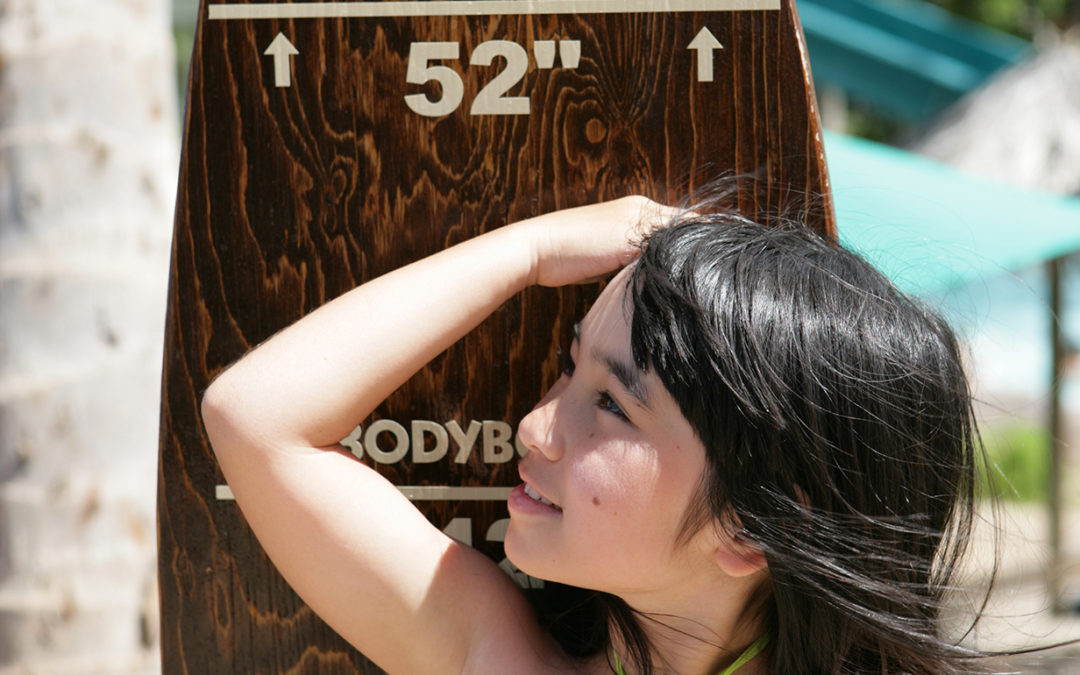
A common question among Christians is, “How can we accept God?” But the better question, the deeper question, is, “How can God accept me?” God answers that himself in Mark 10:14-16.
Jesus said, “Let the little children come to me, and do not hinder them, for the kingdom of God belongs to such as these. I tell you the truth, anyone who will not receive the kingdom of God like a little child will never enter it.” And he took the children in his arms, put his hands on them and blessed them.
My children were all born in Southern California within ten minutes of Disneyland and Knott’s Berry Farm, so rollercoaster riding was like a sacred rite of passage! But there were signs at the rollercoasters stating minimum height requirements in order to ride. Our kids would try very hard to meet that minimum—wear cowboy boots or extra socks, even try to stretch their necks!
There are so many things in our world that have minimum requirements that limit little people from big people stuff: a minimum weight to be exempt from sitting in a car seat, a minimum skill level to swim in the deep end of the pool, a minimum age restriction to have a driver’s license, a minimum education level to qualify for a certain job. Restrictions that say you’re not old enough, big enough, smart enough, strong enough. Our world has many ways of saying, “You don’t qualify!”
But there was this one ride at Knott’s Berry Farm—called Speedway—that had a different kind of qualification. There was a maximum restriction in order to ride! You had to be small enough to qualify. That meant little kids could ride. And a little person could actually bring a big person along for the ride.
In effect, that’s what is going on in Mark 10:14-16. We’re being invited along for the ride with those who are the least! Jesus tells us the qualification for being accepted by God—we must be small enough, like a little child.
So what are children like in Jesus’ eyes?
The first obvious thing we see about children, even little babies, is that Jesus has room for them. He has a heart for them. Why? Is it because they are so innocent? No! They are born under the curse of Adam and Eve’s “Fall” into sin. Jesus has a heart for little children because they are needy: they need a Savior.
Now we also see that a child is helpless. In this story, children are brought to Jesus. They are totally dependent on others. They must be carried, fed, loved. They don’t pay for the things they receive. They don’t clothe themselves, shelter themselves, provide for themselves. They can’t even approach Jesus on their own! Children are the picture of dependency.
One of the best things about kids is that they are receptive—they know how to receive a gift. No little child ever opened up her birthday present, then turned around and said, “So, what do I owe you?” A child is able to receive a gift passively, without effort or condition.
The last thing we see about children in the story is their unique capacity to trust unreservedly. This is not so much about what they do, as it is what they don’t do. Here are little children brought to the arms of Jesus—and he just holds them, enfolds them, and blesses them. And they don’t resist. They trust him unreservedly. This is a picture of the simplest expression of faith: just being held, just resting there—in Jesus arms. Did they intellectually fathom all that was happening to them? No. Could they talk or sing about it? No. Could they write a treatise or testimony about it? Not yet! Was there a “Minimum Restriction” level of understanding necessary for the blessing of Jesus to be effective? No!
But they were held. They rested there, entrusting themselves to the One holding them. And any of you who has had a little child in your arms lean into you—you know that trust!
So little children need Jesus, are helpless, are receptive, and have a unique capacity to trust unreservedly. But this story is not just about little children. Jesus is saying something very clearly to all the big people who are watching and listening. He’s telling us big people that there is a maximum restriction for this ride. We can’t go unless we become like the little ones and go along for the ride with them.
We learn here that big people are needy too—they need Jesus! That’s why Jesus says, “…anyone who will not receive the kingdom of God like a little child will never enter it” (Mark 10:15). We need to be brought into the kingdom of God, which is to say, we need to be restored to a right relationship with God. We need forgiveness!
Also inferred here: we must come to, be reduced to, a child-like helplessness. In Luke’s Gospel, he frames the account of Jesus and the children with stories of big people wrestling with this maximum restriction. One of them is the story of the Pharisee (a very religious person) and the tax collector (considered a notorious sinner) who went into the temple at the same time to pray.
The religious person prays, in effect, “God, I thank you that I’m better than other people: I don’t steal, kill, lie—or any of that. God, I thank you that I am not like that bum praying over there! I’m a good person—far on the east side of the human bell curve! I even fast! (Twice a week!) I even tithe!”
But the other man in the temple—the awful sinner—stands in a corner as far from the altar as he can. He can’t even lift up his head. Desperate, he pounds his chest and says: “God, I’m broken. I’m messed up. I can’t fix it. Can’t fix me! God, have mercy on me, a sinner!”
He is spiritually helpless, like a child. Jesus says: “That’s the guy who walked out of the temple right with God that day!” The man was helpless, but clearly receptive to God, and showed a capacity to trust unreservedly in the Savior.
This is the heart of what Jesus is saying in our text: entrance to the kingdom of God is not a matter of a minimum restriction, but of a maximum restriction. You don’t need to become large enough, but small enough; not strong enough, but weak enough; not more, but less!
The kingdom of God is like that ride at Knott’s Berry Farm: only little children can get in… and those adults who will be like them.
Rev. Paul Larson is President of the Church of the Lutheran Brethren.

